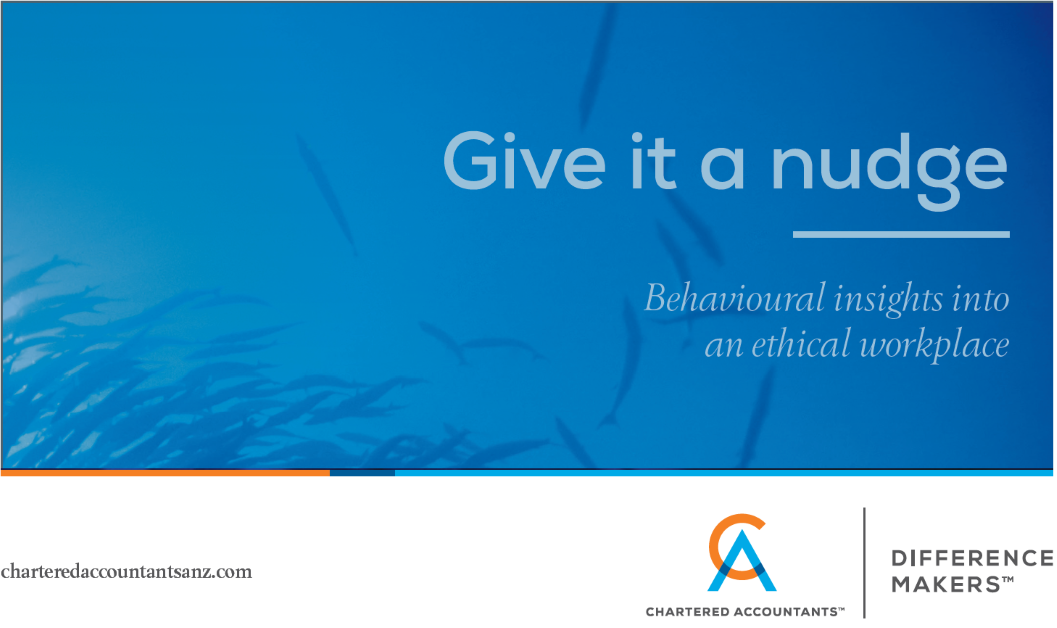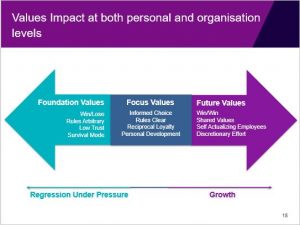Behavioural economics, contrary to its academic name, is a very human subject. It’s about the why and how of our everyday decisions – why we do and what we do.
As such, behavioural economics provides powerful tools for leaders to help shape organisational design decisions to prompt more ethical behaviours. These tools enable leaders to use insights into human behaviour to create environments more likely to result in ethical behaviour as a norm, rather than relying solely on policies and procedures and the personal character of individuals. Behavioural economics points to a people-centred style of leadership, one attuned to human nature and to shifts in culture, as a way of achieving long-lasting positive organisational change.
For those not familiar with this way of thinking it, Give it a nudge represents a great starting point. As the paper suggests, COVID-19 is a real opportunity to start the journey to rethink and redesign organisations with an understanding of people providing the directional arrows.
One such insight is that we humans are inherently social by nature and we mostly want to do the right thing. We love feeling good about ourselves – so designing initiatives that acknowledge our social needs is important. It begins with identifying an overall social purpose for the organisation — one that enables employees to feel good about themselves and their role in helping to achieve positive social outcomes.
For many, I suspect, this a different way of looking at the world. The exercise of rethinking and redesigning organisations based on the insights provided by behavioural economics requires a different type of leadership.
It requires a mindset shift from control to collaboration, where leaders focus on facilitation and empowerment rather than edicts from on high. And it introduces a wonderful new world of nudges, framing and priming.
Acting on a key insight for organisations provided by behavioural economics, that they have a social heart – they are social constructs – will go a long way towards helping rebuild public trust and faith in businesses and organisations.
2021 represents a rare opportunity to break with old ways of doing things.
Give it a nudge.
Ainslie van Onselen LLB MAppFin
Chief Executive Officer
Chartered Accountants Australia and New Zealand
This document was developed and written in partnership
between Chartered Accountants Australia and New Zealand
and Managing Values.
Read the full paper here: GIVE IT A NUDGE – BEHAVIOURAL INSIGHTS INTO AN ETHICAL WORKPLACE
Please fill out the form below to get in touch regarding your organisation’s needs and we will get back to you as soon as possible. You can also call us on 0430 889 850 or email us directly at [email protected].
|
|







